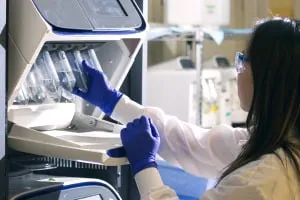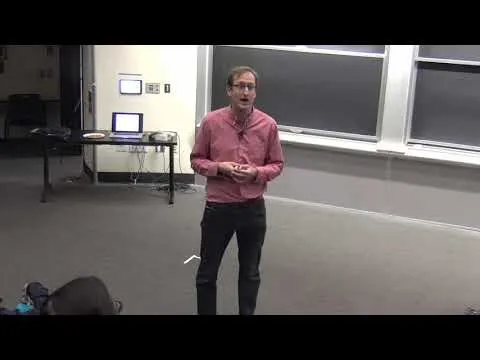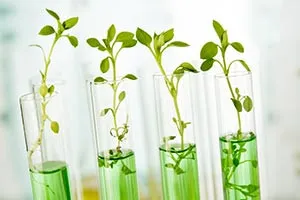
Advanced Diploma in Bioengineering: An Interface between Biology and Medicine 
Discover the fascinating world of bioengineering with the Advanced Diploma in Bioengineering: An Interface between Biology and Medicine. This free online course bridges the gap between engineering and medicine, exploring the global problems that bioengineering aims to solve. From understanding major life processes to exploring the applications of biotechnology and DNA tools, this course offers a comprehensive overview of the field. Delve into the fundamentals of genetics and proteomics, and gain valuable insights into the tools and technologies used in bioengineering. Perfect for professionals in bioengineering, genetic engineering, biotechnology, medicine, and related disciplines. Enroll now and unlock your potential in this exciting field. ▼
ADVERTISEMENT
Course Feature
![]() Cost:
Cost:
Free
![]() Provider:
Provider:
Alison
![]() Certificate:
Certificate:
No Information
![]() Language:
Language:
English
Course Overview
❗The content presented here is sourced directly from Alison platform. For comprehensive course details, including enrollment information, simply click on the 'Go to class' link on our website.
Updated in [September 26th, 2023]
What does this course tell?
(Please note that the following overview content is from the original platform)
Bridge the gap between the sciences of engineering and medicine in this free online course on bioengineering. You will consider the various global problems that bioengineering, using the various technological advancements in the field, aims to solve. In the first section, you will be introduced to the significance of major life processes such as growth, reproduction, evolutionary adaptation and the properties of cells. You will also examine the various technologies associated with biological research such as polymerase chain reaction (PCR) and electrophoresis.
Next, you will consider the various applications of biotechnology and DNA tools. See how these tools can be used in various sectors like agriculture, clinical research, medicine and more. There will also be a series of laboratory demonstrations that reveal the practical uses of some of these tools. Then, you will study the fundamentals of genetics, where you will examine the properties of Mendelian genetics and how its laws influence the patterns of inheritance in plants, animals and humans. The concepts of ‘genetic recombination’, ‘cell cycles’ and ‘cell development’ will also be discussed.
Finally, you will be introduced to the field of proteomics, which features the properties of amino acids, proteins and the applications of protein-related technology, showing how they have driven this field. The basics of mass spectrometry and its applications, as well as the various tools used in the study of biomolecular interactions and the structure of proteins, are also analyzed. This course will be highly beneficial to anyone in the field of bioengineering, genetic engineering, biotechnology, medicine and other related disciplines.
We considered the value of this course from many aspects, and finally summarized it for you from two aspects: skills and knowledge, and the people who benefit from it:
(Please note that our content is optimized through artificial intelligence tools and carefully reviewed by our editorial staff.)
What skills and knowledge will you acquire during this course?During the Advanced Diploma in Bioengineering: An Interface between Biology and Medicine course, learners will acquire the following skills and knowledge:
1. Understanding of major life processes: Learners will gain knowledge about the significance of growth, reproduction, evolutionary adaptation, and the properties of cells in biological systems.
2. Familiarity with biological research technologies: Learners will be introduced to various technologies used in biological research, such as polymerase chain reaction (PCR) and electrophoresis.
3. Application of biotechnology and DNA tools: Learners will explore the diverse applications of biotechnology and DNA tools in sectors like agriculture, clinical research, and medicine. They will also witness laboratory demonstrations showcasing the practical uses of these tools.
4. Fundamentals of genetics: Learners will study the principles of Mendelian genetics and how these laws influence inheritance patterns in plants, animals, and humans. They will also delve into concepts like genetic recombination, cell cycles, and cell development.
5. Introduction to proteomics: Learners will be introduced to the field of proteomics, which involves the study of amino acids, proteins, and protein-related technology. They will learn about mass spectrometry and its applications, as well as the tools used to study biomolecular interactions and protein structure.
Who will benefit from this course?
This course will benefit individuals in the field of bioengineering, genetic engineering, biotechnology, medicine, and other related disciplines. Specifically, professionals who are interested in bridging the gap between engineering and medicine will find this course valuable. It is also suitable for individuals who want to understand the various global problems that bioengineering aims to solve using technological advancements. Additionally, those who want to gain knowledge and skills in biological research technologies such as polymerase chain reaction (PCR) and electrophoresis will benefit from this course. The course also covers the applications of biotechnology and DNA tools in sectors like agriculture, clinical research, and medicine, making it relevant for professionals in these fields. Furthermore, individuals interested in genetics, including the properties of Mendelian genetics and patterns of inheritance in plants, animals, and humans, will find this course informative. Lastly, professionals in the field of proteomics, amino acids, proteins, and protein-related technology will benefit from the course's coverage of these topics.
Course Syllabus
Introduction to Bioengineering
In this module, you will understand the significance of the integration of biology, medicine and engineering to address major societal problems. You will also learn about the various processes that are associated with the sustenance of life, such as growth, reproduction, evolutionary adaption and cell properties.DNA Tools and Biotechnology
This module features the functionalities and Properties of DNA and DNA tools. You will learn about the various technologies involved in molecular biology research and biotechnology such as Polymerase Chain Reaction, Gene Cloning and more.Applications of Biotechnology
In this module, you will study the practical applications of DNA tools and Biotechnology through some laboratory demonstrations. You will also explore the uses of these tools in various sectors like agriculture, clinical research and medicine.Fundamentals of Genetics
In this module, you will learn about some of the basic terminologies associated with genetics such as phenotype, hereditary, genotype, alleles and traits. You will also examine the properties of Mendelian Genetics and how they influence the patterns of inheritance in humans.First Assessment
This assessment enables you to review your learning so you can determine your knowledge and understanding of the first four modules of the course.Inheritance and Pathology
In this module, you will be introduced to Mendel's Laws of Inheritance and consider how these laws affect the behaviour of chromosomes during meiosis. The concepts of genetic recombination, linkage and the properties of bacteria and viruses will also be examined.Developmental Biology
In this module, you will study more intently about cell cycles and development. You will also come to understand the importance of mitosis and the significance of meiosis for reproduction. The principles and applications of plants and animal cloning will also be explained.Proteomics
In this module, you will be introduced to the subject of proteomics. The history of proteomics will be highlighted and you will learn about the properties of amino acids, proteins and protein-related technology, considering how they have driven the field of proteomics. Basic techniques commonly used in the study of proteins will also be discussed.Protein Interactions
In this module, you will study the basics of mass spectrometry and its applications in the field of proteomics. You will also learn about the methods used in the study of protein-to-protein interactions as well as the various tools used in the study of bio-molecular interactions and the structure of proteins.Second Assessment
This assessment enables you to review your learning so you can determine your knowledge and understanding of the last four modules of the course.Course assessment
Course Provider

Provider Alison's Stats at AZClass
Discussion and Reviews
0.0 (Based on 0 reviews)
Explore Similar Online Courses

Unleash The Positive Mind - Be an Autism Power Parent

Fundamentals in Biotechnology and Genetics

Python for Informatics: Exploring Information

Social Network Analysis

Introduction to Systematic Review and Meta-Analysis

The Analytics Edge

DCO042 - Python For Informatics

Causal Diagrams: Draw Your Assumptions Before Your Conclusions

Whole genome sequencing of bacterial genomes - tools and applications

12 Genetics 1 : Cell Division & Segregating Genetic Material
![[LIVE] Learn Genetic Engineering - Part 1: How does it work?](/ccsimg/dcs/img_tools/6b8f615b15bbd31a67f1880c9bd53dd0.webp)
[LIVE] Learn Genetic Engineering - Part 1: How does it work?


Start your review of Advanced Diploma in Bioengineering: An Interface between Biology and Medicine